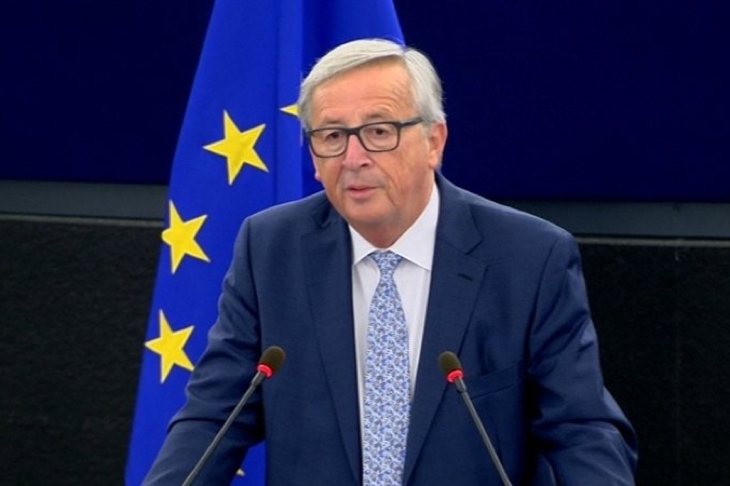The choice which faced us at the EU referendum has often been presented as lying between the status quo and the unknown, between security and uncertainty. Until the early hours of 24 June last year I was convinced that this would be the clincher: that the British public, though heavily Eurosceptic, would not quite have the balls to overcome their native conservatism and take what many would see as a leap in the dark.
Yet Jean-Claude Juncker’s ‘state of the union’ speech today dispels the notion that voting Remain would have been a vote to keep things as they are. Remaining in the EU as it now is was not an option on the ballot paper. Voting Remain would have meant being a member of an institution whose leaders are determined to drive it ever further towards a pseudo-nation. Juncker calls Britain’s decision ‘sad and tragic’ and says we will soon regret it. But there is plenty about remaining that we might have come to regret, too.
The best spin that can be put on Juncker’s speech is that he seems to appreciate the absurdity of having a ‘state of the union’ address made by an unelected official. He proposes making the Commission presidency a directly-elected post. But his following remark doesn’t suggest that he had in mind solving the EU’s democratic deficit, with proper democratic institutions to back up and to keep in check the powers of an elected president. Rather he sees an elected presidency as a way of vesting even more power in one person’s hands – hopefully his. ‘Europe,’ he said, ‘would be easier to understand if there was one captain steering the ship.’
He wants, too, a single EU finance minister. He wants more ‘help’ – for which read pressure – for the remaining non-members of the single currency to sign up for the Euro. There was no acknowledgement in this of the huge hole which the Eurozone dug for itself during the financial crisis by having a single, inflexible interest rate and no provision for currency adjustment between very different economies. Moreover, he wants the Schengen area expanded – which would have removed Britain’s right to operate its own border controls – and, by 2025, a single EU defence union. Never mind that we already have an organisation, Nato, which co-ordinates European defence; Juncker’s dream EU will hubristically have to have its own defence policy and defence force.
If Juncker intended his speech to rouse doubts about Brexit in British minds he is going to be disappointed. There will be a few arch-Remainers, of course, who resent that we have lost the chance to become a member of a European superstate. Rather more of us will have been reminded why Britain and the EU have been drifting apart for the past quarter of a century, and of the reluctant journey we would have been taken on, against our will, had we voted Remain.







Comments